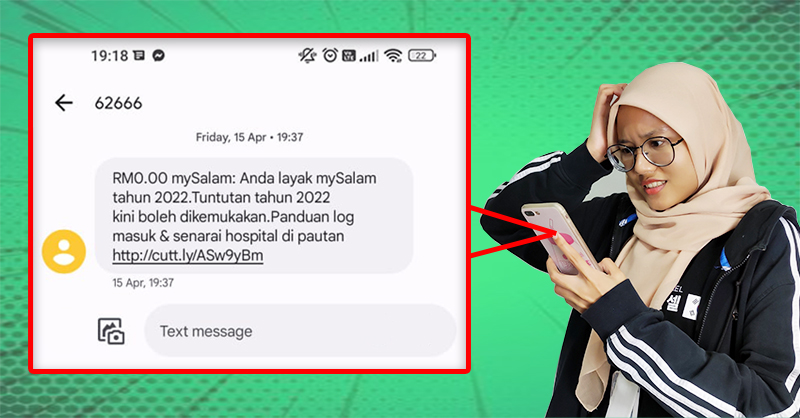4 Ways the new Pharmacy Law will change how M’sians buy medicine
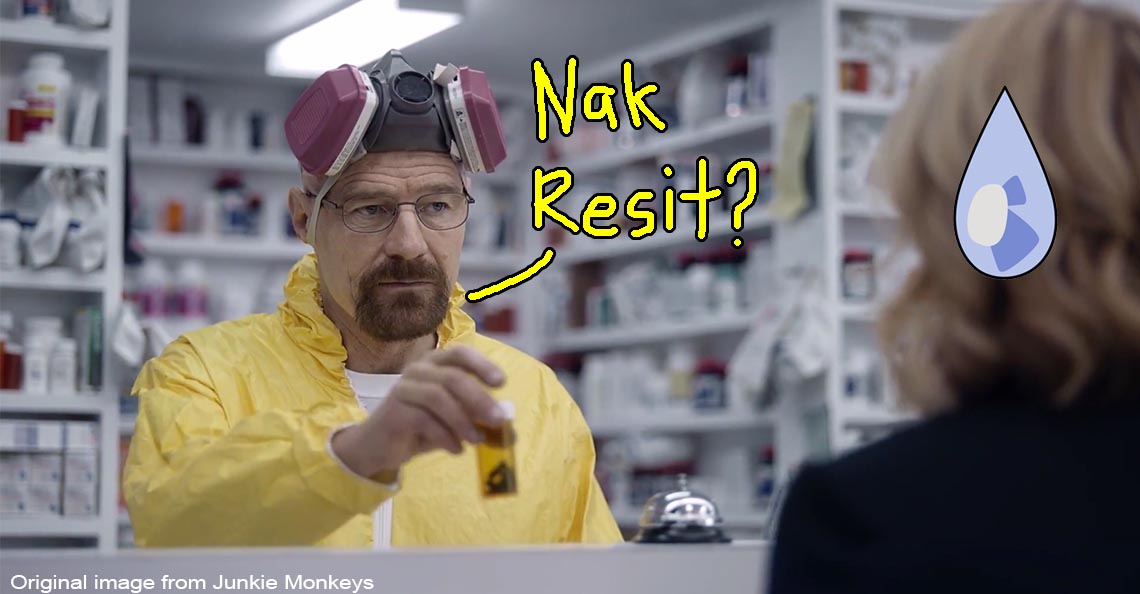
- 1.9KShares
- Facebook1.6K
- Twitter39
- LinkedIn1
- Email67
- WhatsApp159
*Untuk baca artikel ni dalam Bahasa Melayu, tekan sini!
Whenever you watch a medical drama on TV, you’ll find that the storylines always involve doctors and nurses; or in some cases even the janitor.

One character you’d rarely see though, is the pharmacist. In fact, what does a pharmacist even do?
If we were to ask you to list down the process of seeing a doctor when you’re down with a fever, it’d probably be something like this:
- Register at the counter
- Wait till your name gets called
- See doctor
- Get medicine, pay, and balik rumah
The only role a pharmacy has in this scenario is if you dropped by one to buy some shampoo on the way home.
But then right, you might be surprised to learn that this system is actually different from the one used by most other countries. Over there, the doctor will give you a prescription and you’ll have to buy your own medicine from a pharmacist. This is because (very generally) a doctor’s job is to diagnose what’s wrong with you and recommend what medicine to take. It’s the pharmacist’s job to make sure that whatever medicine you’re getting is correct and to give you further counseling.
While it might sound that doctors and pharmacists are working together to give Malaysians better healthcare, the reality is that there’s been some pressure building up over the years… and the Health Ministry’s proposal for a new Pharmacy Bill finally made it reach the boiling point.

This Pharmacy Bill, or Rang Undang-Undang Farmasi is essentially a new “all-in-one” law which replaces four existing laws related to the sale and handling of medicine which is scheduled to be discussed in Parliament later this year. It’s also under the Official Secrets Act, meaning that no one can view or publicly reveal details about it (which is why we don’t have a link to the draft). Luckily, the Ministry of Health held a discussion group with interested parties – mainly doctors and pharmacists – in late 2015 to discuss 60 of these changes.
While some of these changes were good ones, there were 5 that the Malaysian pharmacy community found troubling enough that they started a petition against these changes – again, this is from the people usually so low key that TV series don’t want to feature them! (FYI, it was a pharmacist who first reached out to us asking CILISOS to cover this issue). Of course, the doctors disagreed with the pharmacists and…

For this article, we will only be focusing on the changes that would directly affect the Rakyat, and we spoke to pharmacists and a doctor to get both sides of the argument:
- Harpreet Kaur | Regulatory pharmacist
- Mr Wong | Past president of the Malaysian Community Pharmacy Guild
- Ketot | Writer’s sister and registered pharmacist
- Anonymous | GP (General Practitioner) doctor
So, let’s start off on a positive note, which is…
1. You won’t have to worry about overpaying for medicine anymore!

What the Pharmacy Bill changes: Price control on medication and compulsory itemized billing
Okay, imagine you’re at a restaurant. The menu has no prices, and when you look at the bill it’s just the total that you have to pay. Would you go back to this restaurant again?
Considering how we question our consumer rights in the above scenario or even about restaurants not giving us our 5 sen change, isn’t it weird that we’ve never questioned how clinics never give you a breakdown of how much everything actually costs? Well, the good news is that the Pharmacy Bill will make it mandatory for all clinics, hospitals, and pharmacies to give you an itemized bill with every visit, so you’ll know exactly what you’re paying for.
Another thing to look forward to is price controlled medication. Right now, price controls for medicines are under the Ministry of Domestic Trade (KPDNKK) but the Pharmacy Bill will allow the Health Ministry to implement their own system to control medicine prices.
What this means to the regular Rakyat:
This basically enforces our rights as patients and consumers because naughty pharmacies and clinics will no longer be able to overcharge you, especially with the itemized billing in place. A level field of pricing will also force clinics and especially pharmacies to focus on service (since they can no longer undercut prices) which means we’ll be better taken care of in the long run.
Now, let’s move on the more worrisome stuff…
2. Getting medicine from your doctor is now LEGAL! But wasn’t it legal all this while…?

What the Pharmacy Bill changes: Doctors can sell you medicine
This is going to be a long point, so bear with us ya?
As mentioned, how medicine is sold in Malaysia (and Singapore) is different from almost every other country. The whole get prescription from doctor and medicines from pharmacy thing is called Dispensing Separation, and there are two reasons why it’s considered the better method:
- To make sure doctors don’t become medicine salesmen – It’s like a movie critic reviewing a movie he starred in. Can you count on him to be fair?
- To create another level of safety for the patient – We’ll cover this in point #3
So how did we end up with a system that’s different from the rest of the world?
According to Mr. Wong, the current practice came about because of a shortage of pharmacists and doctors in the early days before independence. The British solved this problem by introducing a law in 1952 that allowed doctors to dispense medicine as a NON-PROFIT service. While the laws were later changed to allow for dispensing separation, it still remains a legal gray area where only hospitals are following the rule in order to adhere to international standards since Malaysia is now becoming a hub for medical tourism. Why private clinics aren’t following this rule depends on who you ask:
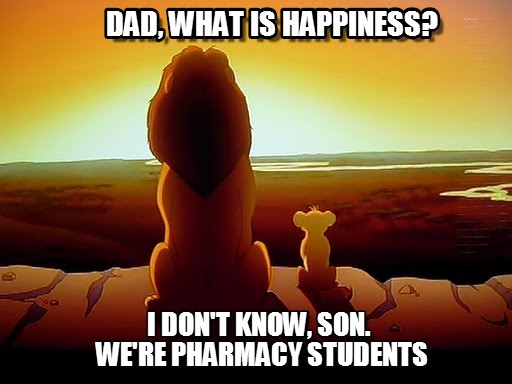 The pharmacists say it’s mainly because of the money. For private clinics, the meds they sell you is a huge part of their income. Harpreet and Mr. Wong tell us that clinics get a very good price from suppliers – prices that are lower than what pharmacies get. So in this sense, they might be more tempted to prescribe you medicines that you might not necessarily need, or give you a choice between brands. A pharmacist (ideally) would be able to advise you on what’s needed and give you options.
The pharmacists say it’s mainly because of the money. For private clinics, the meds they sell you is a huge part of their income. Harpreet and Mr. Wong tell us that clinics get a very good price from suppliers – prices that are lower than what pharmacies get. So in this sense, they might be more tempted to prescribe you medicines that you might not necessarily need, or give you a choice between brands. A pharmacist (ideally) would be able to advise you on what’s needed and give you options.
On the other hand, the doctor we spoke to argues that a separation would increase your medical cost and make it more inconvenient because :
“The first thing is that you’re asking someone who’s unwell to go to two places to get treatment. The second, what happens at night when the pharmacies are closed? People in bigger towns can go to a private hospital, but what about small towns? It defeats the purpose.
In a very small way, doctors do make money from the medicines; but they charge less for consultation – some as low as RM15 here in Ipoh. If you take that away they’ll charge more for consultation in order to survive. This will only drive up the cost of the overall treatment.” – Anonymous doctor, in phone interview with CILISOS.
What this means to the regular Rakyat:
Well, basically it means that nothing changes except that the law will get rid of the legal grey area by allowing doctors to sell you medicine. Whether or not this is a good or bad thing (based on the arguments above) is kinda up to you.
3. Doctors don’t NEED to tell you what medicine they’re giving you
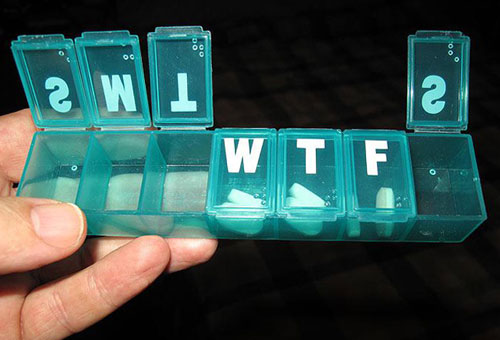
What the Pharmacy Bill changes: Doctors are not required to give you a prescription unless you ask for it
If you were at a shopping mall and saw a bag of potato chips that just says “CHIPS” with no listing of ingredients or anything else, would you buy it? We’re guessing the answer is no, because you’d probably want to know exactly what you’re buying – especially if it’s something you’re going to eat.
So how many of us know exactly what kind of medicine we’re getting from the clinic other than the “FEVER” or “COUGH” written on the packet? Well, it may help if you were given a prescription.
Again, most of us who go to the clinic may not know this, but doctors are actually REQUIRED by law to give a prescription to the patient even if you’re getting it from the clinic itself. This prescription generally has the doctor’s details, the diagnosis, and the recommended medicine. This serves two functions, the first that you’ll have the option to buy the meds somewhere else; and the second is for legal protection – like if you died because the wrong medication was given (choi!), the prescription can be used as evidence.
“Most countries already practice mandatory prescription and even Malaysian public and private hospitals – just not private clinics.” – Harpreet Kaur, in phone interview with CILISOS.
While price might be a consideration for buying your meds from outside the clinic, the main reason is actually safety. Just as how a doctor may refer you to a specialist for a second opinion, the pharmacist can be considered the medicine “specialist” because they can spot mistakes and further advise you on side effects, alternatives, and how to effectively take the medication aside from “Take 2 tablets 3 times a day”.
“Doctors can make mistakes too. A pharmacist is the auditor for the doctor. That’s what we’re trained to do, that’s what we spent four years studying!” – Mr. Wong, in phone interview with CILISOS
We assume part of that training involves reading doctors handwriting 😆

However, our anonymous doctor offered a counter-point: That not all pharmacists do their job either.
“When I was in the UK, yes, the pharmacist will explain everything. But most of the time when I go to a pharmacy here, it’s the counter girl that sells me the medicine. The pharmacist is usually sitting there or won’t say anything.” – Anonymous doctor
What this means to the regular Rakyat:
Again, it’s an issue of rights. While it has always been your right to get a prescription, not all clinic doctors have followed it. The change in the Pharmacy Bill kinda makes the practice legally acceptable, because if you didn’t ask for a prescription, the responsibility is now on you rather than on the doctor.
And really, how many of ugaiz knew you were supposed to get a prescription this whole time? 😉
4. You might have UNQUALIFIED people giving you medicine!
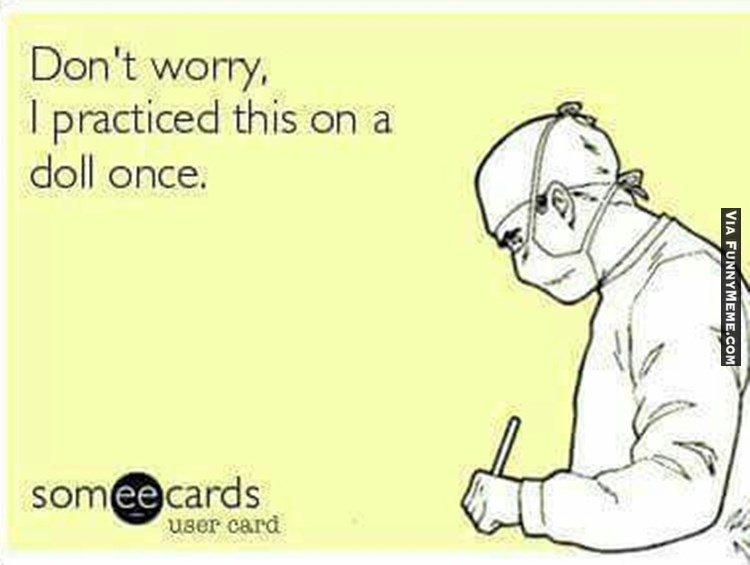
What the Pharmacy Bill changes: Pharmacy technicians can now work directly under a doctor. ←Chill, we’ll explain what this means.
Very briefly, a Pharmacy Technician to a pharmacist is kinda like a nurse to a doctor. They’re trained for the specific purpose of assisting the pharmacist – like handling the medication and paperwork – but not how the medication actually works since some medicines have pretty bad interaction effects. For example, Medicine A and Medicine B might work great on their own, but taking both together may cause you to go blind.
So just as how you won’t go to a nurse for brain surgery, you’d probably not want a Pharmacy Technician checking to see if your medication is safe.
With the pharmacy bill, Pharmacy Technicians are allowed to work under the supervision of a doctor instead of a pharmacist, meaning that a doctor can directly ask the Pharmacy Technician to get the medication that you need; which bypasses a pharmacist’s safety checks. While all three of the pharmacists we spoke to say that hospitals will most likely stick to the international standards, the Pharmacy Bill kinda leaves the door open for some hospital doctors tempted to take shortcuts.
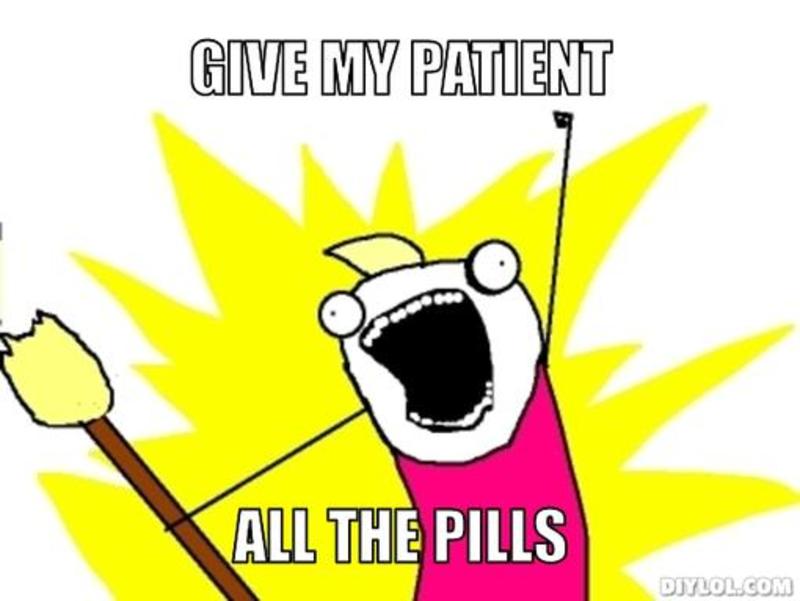
But where this rule will really have an effect is in private clinics, because they can now replace the counter auntie who usually gives you your meds with a Pharmacy Technician. In a way, this is a good thing, because the counter auntie is usually not even medically trained, so a Pharmacy Technician would be a much better improvement. But to a pharmacist, wrong is wrong la.
“Actually, dispensing by clinic assistants [the counter auntie] is not allowed.” – Harpreet Kaur
“Clinics are not supposed to have unqualified people dispensing the meds in the first place, so this is like making a wrong practice right by changing the law.” – Ketot, over coffee conversation with CILISOS.
What this means for the regular Rakyat:
Considering how dispensing separation isn’t gonna happen with the Pharmacy Bill anyway, we suppose that having someone who’s at least trained in some areas of pharmacy is better than no training at all?
It’s not about Doctors vs. Pharmacists, it’s about YOU!
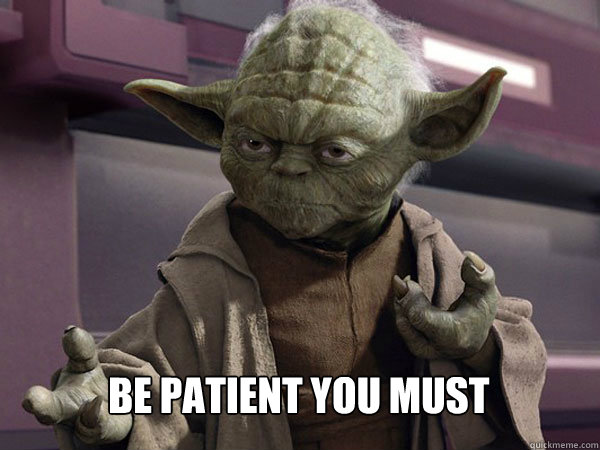
Before we continue, we’d like to know whose side you’re on – Team Doctor or Team Pharmacist?
If you voted for the third option (Not knowing what the fuss is about), that’s exactly why we gave you so much background information in this article – because most patients don’t know what their rights actually are. We’ve stuck to the current system for so long that most people (including us at CILISOS) have accepted that it’s just how things are done.
While our pharmacists and doctor had different points of view in regards to the Pharmacy Bill, one thing that they all agreed on is that the patient’s well-being should never be compromised. If you disagree with the changes the Pharmacy Bill is bringing, you can sign the petition here. If you’re okay with it (or if the Bill gets passed), you should at least know what rights you’re entitled to because you never know if you might need to exercise them in the future.
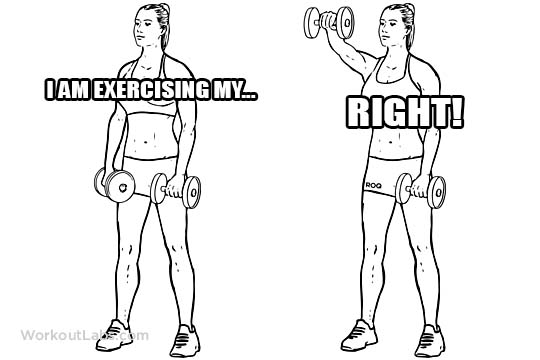
P.S.: Regular exercise is good for health too 😛
- 1.9KShares
- Facebook1.6K
- Twitter39
- LinkedIn1
- Email67
- WhatsApp159

